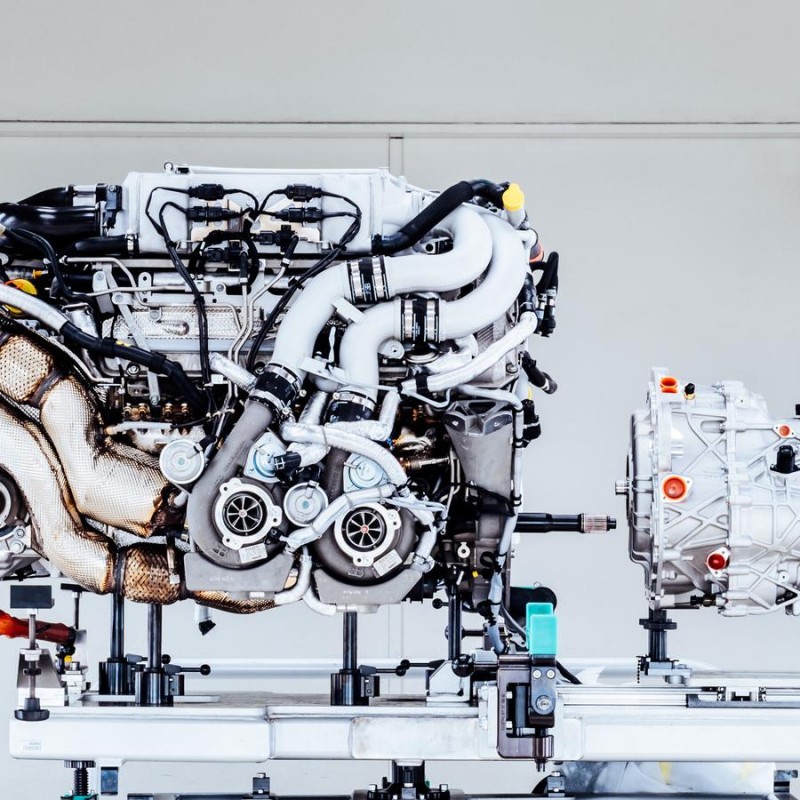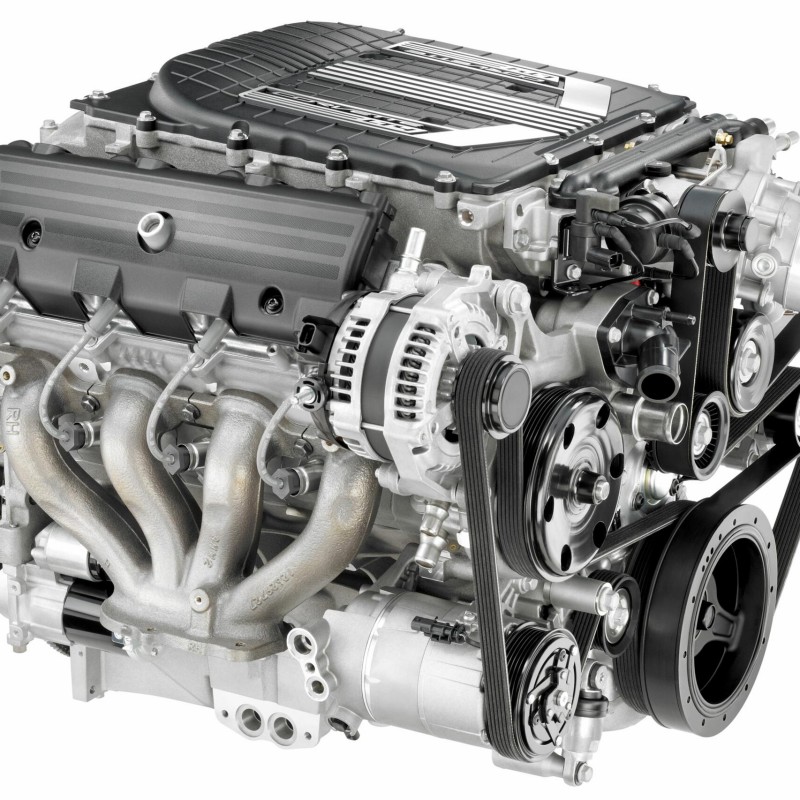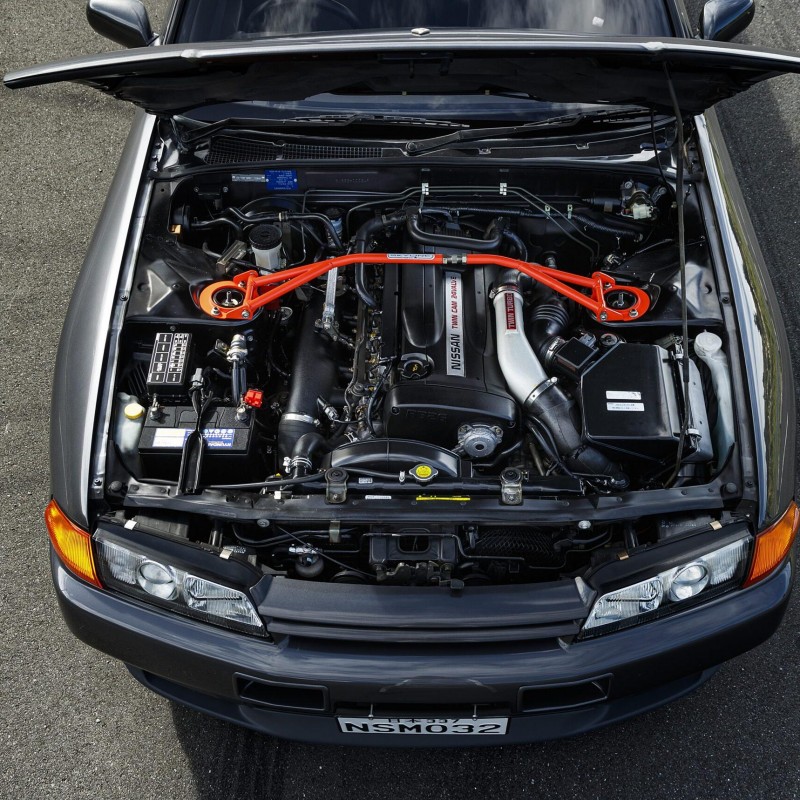When it comes to choosing an engine for your vehicle, the options can be overwhelming. Among the many choices available, the V8 engine stands out for its power and performance. But the critical question that many potential car buyers and engine enthusiasts ask is, “Is a V8 engine good?” Understanding this entails examining various factors, including its performance capabilities, fuel efficiency, maintenance requirements, and overall reliability. With roots tracing back to the early 1900s, V8 engines have evolved considerably over the decades. Today, they remain popular in various applications, from muscle cars to trucks and SUVs. This article will thoroughly explore the advantages and disadvantages of V8 engines, helping you make an informed decision tailored to your individual driving needs.

The Basics of a V8 Engine
To determine if a V8 engine is a good choice, it’s essential first to understand what it is and how it works. V8 engines are named for their configuration, which features eight cylinders arranged in a “V” shape around a central crankshaft. This design allows for greater power output compared to smaller engines.
- Cylinder Configuration: The V8 typically features either a 90-degree or 60-degree angle between the cylinder banks. The more common 90-degree configuration contributes to a smoother running engine and better balance due to its firing order and weight distribution.
- Displacement and Performance: V8 engines come in various displacements, ranging from 4.0 liters to over 7.0 liters. Generally, a larger displacement equates to more power and torque, which contributes to enhanced performance.
- Power Output: Many V8 engines produce significant horsepower and torque, making them a favorite for performance cars and heavy-duty trucks. This power allows drivers to tackle various driving conditions, whether for towing or highway cruising.
- Fuel Systems and Compression Ratios: Modern V8 engines often utilize sophisticated fuel injection systems that optimize fuel airflow and enhance combustion. Additionally, varying compression ratios can affect power output and efficiency.
With this understanding of the basic mechanics of a V8 engine, we can delve deeper into whether a V8 engine is good for you based on several key factors.
Performance Capabilities of V8 Engines
When assessing if a V8 engine is good, performance capabilities should be front and center. V8 engines offer undeniable advantages when it comes to power and responsiveness.
- Acceleration: V8 engines excel when it comes to rapid acceleration. They provide ample horsepower to enable quick takeoffs from a stop. This feature makes them a popular choice for performance cars.
- Towing Capacity: For those who utilize their vehicles for towing, V8 engines deliver the torque needed to pull heavy loads effectively. Many trucks and SUVs equipped with V8 engines can haul trailers, boats, or off-road equipment without straining.
- Off-Road Performance: V8 engines are preferred in off-road vehicles as they provide necessary power in challenging terrains. The torque produced by these engines helps maintain momentum on steep inclines and uneven surfaces.
- High-Speed Stability: The power generated by a V8 engine contributes to a stable high-speed driving experience. This aspect is especially beneficial for highway driving and overtaking other vehicles safely.
However, it’s important to remember that while V8 engines are remarkably powerful, individual vehicle performance will still depend on many factors such as vehicle weight, aerodynamics, and drivetrain configurations.
Fuel Efficiency Considerations
While the power and performance of V8 engines are often lauded, one aspect often criticized is fuel efficiency. With rising fuel costs and environmental concerns, it’s essential to evaluate this factor when questioning if a V8 engine is a good fit for your needs.
- Fuel Consumption: V8 engines generally consume more fuel than smaller engines. Many traditional V8s average about 15-20 miles per gallon (MPG), depending on driving conditions and styles. This inefficiency can lead to higher fuel expenses over time.
- Power vs. Efficiency: While V8 engines sacrifice some fuel efficiency for power, many drivers value performance above all else. Some recent advancements have led to the development of more fuel-efficient V8 engines, but they still lag behind their smaller counterparts in fuel economy.
- Cylinder Deactivation Technology: Many modern V8 engines employ cylinder deactivation technology. This technology allows the engine to disable half of its cylinders (usually four) during light-load driving. This approach helps improve fuel economy by operating as a four-cylinder engine under specific conditions.
Despite advances in technology aiming to improve fuel efficiency, potential buyers must consider their driving habits. If fuel savings are a priority, a smaller engine or hybrid option may be better.
Maintenance and Longevity
Another critical factor in determining whether a V8 engine is good involves maintenance and overall longevity. Regular maintenance can significantly impact the lifespan of an engine, making this aspect a crucial consideration.
- Routine Maintenance Requirements: Like all engines, V8s require regular maintenance to ensure longevity. Oil changes, filter replacements, and cooling system checks are all essential. V8 engines typically have similar maintenance needs to other engine types but can be more costly due to the added complexity and parts.
- Durability: V8 engines are known for their durability. Many manufacturers design them to withstand heavy loads and high power outputs. With proper maintenance, a well-built V8 engine can easily last over 200,000 miles.
- Parts Availability: V8 engines are prevalent in the automotive market, ensuring that replacement parts are widely available. This factor contributes to easier repairs and affordability when maintenance is required.
- Performance Parts and Modifications: Many enthusiasts enjoy upgrading their V8 engines for enhanced performance. The aftermarket for V8 parts is vast, ranging from performance exhaust systems to turbochargers and superchargers. This range of options allows owners to customize their engines to suit their driving preferences.
Overall, the long-term reliability of a V8 engine depends on the driver’s commitment to regular maintenance and care.
V8 Engines in Different Vehicle Types
Another angle in which to assess if a V8 engine is good is to consider the types of vehicles that commonly use this powerhouse engine type. The performance attributes of V8 engines suit various applications.
- Muscle Cars: V8 engines are iconic in the world of muscle cars. They offer the raw power, aggressive sound, and performance required to deliver thrilling driving experiences. Models such as the Ford Mustang, Chevrolet Camaro, and Dodge Charger showcase the effectiveness of V8 engines.
- Pickup Trucks: For those needing utility, V8 engines dominate in pickup trucks. They provide the necessary torque for towing and carrying heavy loads. Trucks like the Ford F-150 and RAM 1500 are popular choices for those who require both power and versatility.
- SUVs: Many large SUVs opt for V8 engines to ensure performance and stability while accommodating families. Models such as the Chevrolet Tahoe, GMC Yukon, and Ford Expedition highlight the advantages of V8 power in larger vehicles.
- Luxury Vehicles: Some luxury vehicles come equipped with V8 engines to deliver both power and sophistication. These engines provide a smooth ride with sufficient power for a dynamic driving experience, which many luxury drivers appreciate.
Each vehicle type offers different benefits, illustrating how versatile V8 engines can be across varied driving contexts.

Environmental Considerations
With growing concerns about climate change, evaluating the environmental impact of a V8 engine adds another layer to the question of whether it’s a good choice.
- Emissions: V8 engines generally produce higher emissions than smaller engines due to their larger displacement. Increased fuel consumption translates into a higher carbon footprint, which is an essential consideration for environmentally conscious consumers.
- Regulations: Governments continue to implement stricter emissions standards. V8 engine manufacturers are responding by developing technologies to lower emissions and meet regulatory requirements. Many manufacturers invest in hybrid and electric technologies to create more sustainable options.
- Future Trends: As the automotive landscape evolves, the integration of alternative fuels and electrification will impact the traditional V8. The future may see V8 engines focusing on hybridization or leveraging new technologies to reduce their environmental impact.
Prospective buyers concerned about the ecological footprint of their vehicle must weigh the gas-guzzling reputation of V8 engines against the technological advancements geared toward reducing emissions.
Comparing V8 Engines With Other Engine Types
To conclude if a V8 engine is good for your driving needs, it is essential to compare it to other engine types. By understanding the differences, you can make a more informed decision.
- V6 Engines: V6 engines offer a balance between power and fuel efficiency. With fewer cylinders, they often achieve better MPG while still providing adequate performance. However, they typically don’t match the power output of V8 engines, making them less suitable for high-performance applications.
- Turbocharged Four-Cylinder Engines: Thanks to advancements in turbocharging, four-cylinder engines can produce power comparable to larger engines while remaining more fuel-efficient. They are gaining popularity in many cars and offer a good alternative for those prioritizing efficiency over raw power.
- Electric Engines: Electric vehicles (EVs) use entirely different technology, providing instant torque and power with less environmental impact. While they do not have the same sound and experience associated with V8 engines, they are rapidly growing in popularity due to their sustainability.
- Hybrid Engines: Hybrid vehicles combine internal combustion engines with electric motors, offering the best of both worlds. They tend to provide better fuel efficiency while still allowing for extended range compared to fully electric vehicles.
Each engine type has its pros and cons, ensuring you have options when choosing the right powertrain for your needs.

Conclusion
In summary, determining if a V8 engine is good for your needs involves weighing its performance capabilities, fuel efficiency, maintenance requirements, and environmental impact. V8 engines offer unparalleled power, particularly for muscle cars, pickups, SUVs, and performance-focused vehicles. Their acceleration, towing capacity, and off-road capabilities are significant selling points. However, they do come with considerations, such as higher fuel consumption and emissions.
If you value power and performance above all else, a V8 engine may be the right choice. However, we recommend considering factors like fuel efficiency and environmental sustainability before making a decision. As the industry evolves, alternatives like turbocharged engines, hybrids, and electric powertrains offer compelling options.
Ultimately, choosing the right engine type depends on your driving lifestyle and priorities. By taking the time to understand what a V8 engine can offer, you can make a more informed decision tailored to your individual needs.
Tags: automotive choices, driving experience, Engine Performance